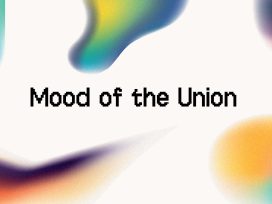After the fall of the Berlin Wall in 1989, Clifford Geertz predicted that the world would be characterized by ‘deep diversity’, ‘a sense of dispersion, of particularity, of complexity and of uncenteredness’ rather than unified world order, as stipulated by the then consensus.
In an age of identity politics and culture wars, Geertz’s insights sound even more powerful today than they did at the time. According to the American anthropologist, our task is ‘to penetrate the dazzle of the new heterogeneity’ and analyse the paradox that confronts us: the world is both more global and more divided than ever in human history. The sense that we find ourselves in ‘a scramble of differences in a field of connection’ is even more immediate, as is the realization that there is a multiplicity of alternative, sometimes conflicting and clashing, visions of the good.
This focal point, inspired by a lecture that Geertz delivered in 1995 at the Institute for Human Sciences in Vienna, summarized in the institute’s magazine, will engage with these issues. It follows the launch of a research programme of the same name at the institute in January 2023, coordinated by Clemena Antonova.
The collection of essays is an extension of earlier focal points ‘Eurasia in Global Dialogue’ (2018-2023, led by Clemena Antonova) and ‘Russia in Global Dialogue’ (2012-2018, led by Tatiana Zhurzhenko). Further texts have been contributed by journals in the Eurozine network.

In collaboration with
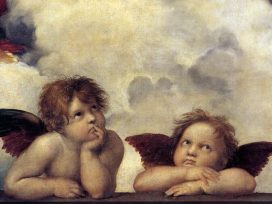
Overturning an adherence to cultural classics has historical precedents. For the Soviet avant-garde, revolution meant dispensing with symbols of reverence: everything from Renaissance paintings to Tolstoy. And, in the process, the likes of Mayakovsky left their own work ultimately open to being cancelled, both conceptually and for real.
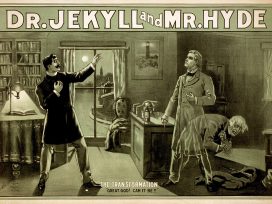
Voicing opinions to explain political tensions from afar is contentious for those treated as mute subjects. Focusing solely on distant, global decision-making disguises local complexity. Acknowledging the perspectives of East Europeans on Russian aggression and NATO membership helps liberate the oppressed and open up the debate.
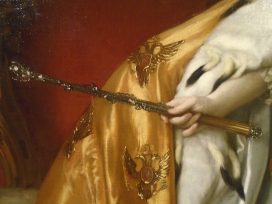
Vladimir Putin insists that Russia is a unique civilisation state. But behind this assertion of ‘Sonderweg’ or a ‘special path’ lies a complex series of social constructs. Questioning the geopolitical metaphor dividing ‘West’ and ‘East’, ‘Europe’ and ‘Russia’, points to a recurring battle with transformation.
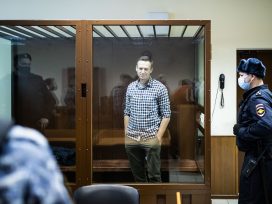
As the face of European idea in Russia, Navalny incorporated everything that the forces of revanchism in the country oppose. But anti-Europeanism is no more organic to Russian politics than its opposite. Sooner or later, the pendulum will swing back the other way.
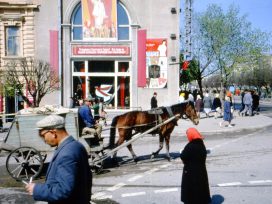
Decolonizing Russia?
Thoughts and warnings from Russia’s first imperial collapse
The ‘decolonizing’ turn in historiography emphasises culture over politics, overlooking anti-imperialism’s frequent descent into authoritarian nationalism. So how can critical histories of the Russian empire account for nationalist deformations?
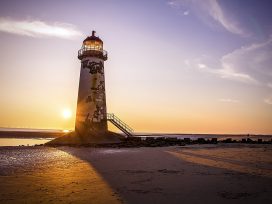
Capitalism is no longer a shining beacon: once influential countries are on the verge of becoming third-world economies; developing powers no longer aspire to the West’s visions of progress. Could a viable alternative, avoiding complete environmental devastation, be found in relinquishing fixations on the past and utopian ideals?
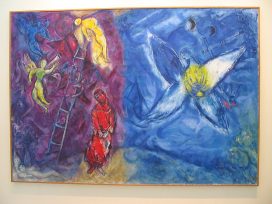
Ongoing discourse about a collective Belarusian identity since the 2020 protests tend to circle around nationalism. Those who oppose the regime and managed to escape are calling for horizontal societal structures, in solidarity with those imprisoned. Belarusian culture is more than language; it includes human rights, economic interests and everyday narratives.
During the Second World War, Pope Pius XII failed to recognize the plight of victims. Today, Russia’s Patriarch Kirill supports the Kremlin’s ‘special military operation’, denouncing liberal rights, especially those of LGBTQ+ communities, and, consequently, Ukraine’s majority Orthodox Christian community.
While Zelensky calls for Ukrainian civilians to flee eastern Donetsk, under ongoing attack from Russia’s military, Putin maintains that his forces are liberating the region. Propaganda that turns conflict into salvation denies the evidence of war crimes on frontlines. But what lies behind this denial? And how can it be overcome?
Penal colonies and mysterious deaths of political opponents are still part of Russia’s political machinations today. Remembrance and documentation are criminalized, as the case of Memorial shows. And yet, there is a lot to explore and memorialize – for instance, the thousands of people slaughtered in Sandarmokh forest, Karelia, during Stalin’s Great Terror.
The many names of Chernivtsi in Ukraine attest to the tumultuous military and political history of Europe, borne out in cultural and linguistic competition, conflict and compromise in literature, music and art. What traces of this past can still be seen in the city today?
The end of an era
Bulgaria’s reformist government gets tough on corruption
Kiril Petkov’s reformist government in Bulgaria has just clocked in four months in power. Amidst low vaccination coverage, Russian influence, and an ongoing war on corruption, there are few reasons to celebrate, aside from the fact there is a government at all.
Unlike their nineteenth-century precursors, anti-European intellectuals in Russia today are neither engaged in dialogue with the West, nor do they realize that their ideas about European decline are themselves derivative.
From being the literary darling of Bulgaria’s communist regime, Georgi Markov became its most vociferous critic. Yet his memory, in so far it exists at all, has been reduced to his spectacular assassination in London. On Markov’s work and the lives of the man behind it.
Human, all-too human
Anastasia Filippovna’s ‘Portrait of Christ’
If Jesus is portrayed as fully human, can his divinity be rescued from the manifestation of what is visibly ‘all-too-human’? Christ’s depiction in Dostoevsky’s novel ‘The Idiot’ creates layered religious, historiographical and artistic readings.

